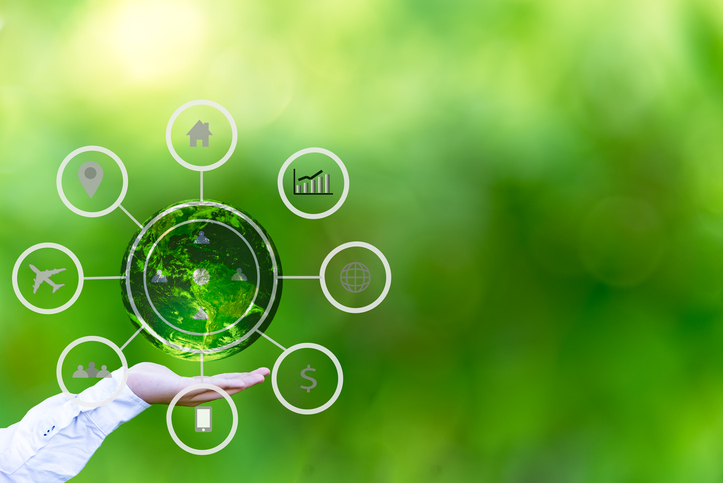EURADA is one of the five partners of the project U-Eco - Upskilling for more creative circular economy – which began in September 2019 and is due to conclude in September 2021. The main objective of the project is to create a set of training modules aimed at young professionals and entrepreneurs wanting to learn more about circular economy and find a career path within it. The training modules are divided into 12 units, and the current phase of the project being worked on is the finalisation of a manual for trainers.
To get the training modules done, every project partner focused on their own country and its particularities to start a business, also contributing to conducting desk research on circular economy and job that are likely to grow within that context. To finetune all the information and with the objective of providing the highest quality training, every partner conducted their own quality assurance, engaging circular entities and experts. This article is to introduce the entities that gave their inputs on the quality of the training.
Idelux Eau
Idelux is the development agency of the Luxembourg province in the Wallonian Belgium. They have four main areas of work: enterprises, communal projects, waste and water, making it an agency committed to circularity.
Their commitment to the environment is very patent, as the following key figures of 2019 show:
21 autonomous communes accompanied in their drinking water management,
93 purification stations,
150 pump stations, with 4 retention basins,
290 exploited km of collectors,
41,7 million m3 of used water purified,
In total, they created more than 40 jobs in different communes.
The main expertise that we in EURADA considered could be really insightful for the U-Eco project is their treatment and management of water. With this being one of their main working sector and major commitment, they could assist in a very helpful way with the training module testing.
VIL and CiLAB Collective
Mr Jan Merckx, researcher in Circular Economy, was kind enough to participate in this testing phase and share his expertise to improve the content the U-Eco partnership had developed.
Mr Merckx is an independent contractor for VIL, the single point of contact for the logistic sector appointed by the Flemish government, whose goal is to create economic and social value for companies. VIL initiated a 2-year project in 2017 on Circular Textiles (called Cilotex) to support circularity in the textile sector through an added value logistics, starting from a more effective collection of end-of-life clothing.
Moreover, there is a recently implemented and very interesting initiative called CiLab Collective, with Mr Merckx one of its creators, alongside Clinton James Topley (founder of #icut2cre8) and Sibille Diederichs (designer and founder of Joseffa, live twice). CiLab is a circular textiles HUB, aiming to disseminate knowledge about circularity. Ensuring 100% reuse and thinking locally is its goal.
The first Intellectual Output of U-Eco has now come to an end, thanks to the efforts of the U-Eco partnership to develop useful training modules and to the experts and end users who took part in the testing phase. We want to thank them all deeply, and we are looking forward to taking the next steps in the project: the testing phases for the second and third Intellectual Outputs and national Multiplier Events to be held closer to the summer. Stay tuned for more information on these events and the opportunity to take part!
More information
For more information on U-Eco, you can check EURADA’s and SwIdeas’ webpages on the project.
Click here to check the Circular Economy Action Plan of the European Commission (2018) and here to check the European Parliament’s definition of Circular Economy.
For more information on Idelux, please visit their official website (FR), and you can check here their annual report of 2019.
For more information on Cilotex, please follow this link.
For more information on CiLab Collective, you can go to their LinkedIn page or to their Instagram page. Here you will find an informative video (NL).
